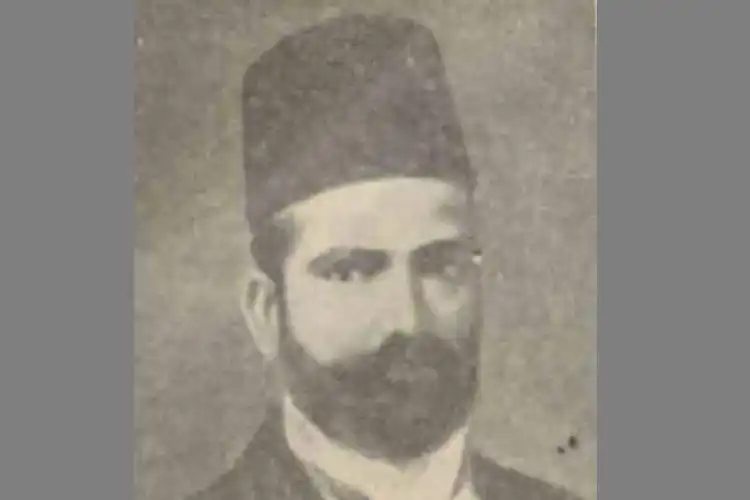
Saquib Salim
Mohandas Karamchand Gandhi aka Mahatma Gandhi is often ascribed as the man who transformed the Indian Freedom Struggle into a mass movement. Very few in present India know that Nawab Syed Mahommed Bahadur was the person who formally introduced Gandhi to the nation and paved his way to return from South Africa.
Nawab Syed Mahommed Bahadur, a direct descendant of Tipu Sultan, was one of the leading nationalists of the early 20th century. He belonged to that generation of nationalist leaders who believed in constitutional methods and petitions to win concessions from the colonial rulers. Leaders like Gopal Krishna Gokhale, Dadabhai Nauroji, and Bahadur indeed laid the foundations of what later emerged as a national freedom struggle. Syed Mahommed Bahadur was devoted to the service of his nation. His father Mir Humayun Bahadur funded the earliest sessions of the Indian National Congress and the heroics of his great grandfather, Tipu Sultan, are well known.
In 1894, Nawab Syed Mahommed Bahadur joined the Congress. He was a man of secular national vision about whom Pattabhi Sitaramayya, an eminent freedom fighter, wrote, “he was however a Congressman first and a Muslim next”. In 1898, he became a member of the Madras Congress Committee and three years later was elected to the Indian Congress Committee. At the 19th session, 1903, he chaired the Reception Committee and the next year was he given the responsibility of drafting the constitution for Congress.
At the 28th session of the Indian National Congress in Karachi in 1913, Nawab Syed Mahommed Bahadur was elected President of the session. He thus became the third Muslim President of Congress. In his tenure, Congress passed a resolution urging the British Government to ban indentured labour, a form of slavery. Also, another note passed at the Congress session said “admiration for the Heroic endeavours of Mr. Gandhi and his followers, and their unparalleled sacrifice in their struggle for the maintenance of the self-respect of India and the redress of Indian grievances.” Sitaramayya says, “this was the real introduction of Mr. Gandhi to India, if one may say so”. Almost a year later, Gandhi returned to India as a champion of oppressed people.
If this introduction was not enough, Nawab Syed Mahommed Bahadur went on to provide a roadmap for his political journey. Gandhi became a Mahatma as a result of Khilafat and Non-Cooperation Movements, where Hindus and Muslims stood united to save the integrity of Turkey. What Gandhi did after the war, Nawab envisaged all that before the war. In his address, Nawab drew attention towards “subversion of the Ottoman Empire in Europe and the strangling of Persia.” He told the audience that the Hindus and Muslims should rally together on this issue and challenge the dictatorial ways of the British Empire.
About the Presidential address Sitaramayya writes;
“This reminds us of the Khilafat Movement of 1921 and its repercussions on the Hindu-Muslim relations in India. ‘The Sick Man of Europe’ (as Turkey was termed in the 19th century) has all along played a notable part in shaping the course of Indian politics. It was under these conditions that at the Karachi Congress (1913) the Hindus and the Muslims closed their ranks.”
This great patriot who fought a relentless war against the communal divide, religious bigotry and tried to unite the nation for a future battle against the colonial rulers has been largely forgotten. He left this world for a heavenly abode on 12 February 1920. This Indian pays tribute to this son of the soil on his death anniversary.
Also Read: The Dehlvi family kept Urdu’s grandeur alive
(Saquib Salim is a historian and a writer)
